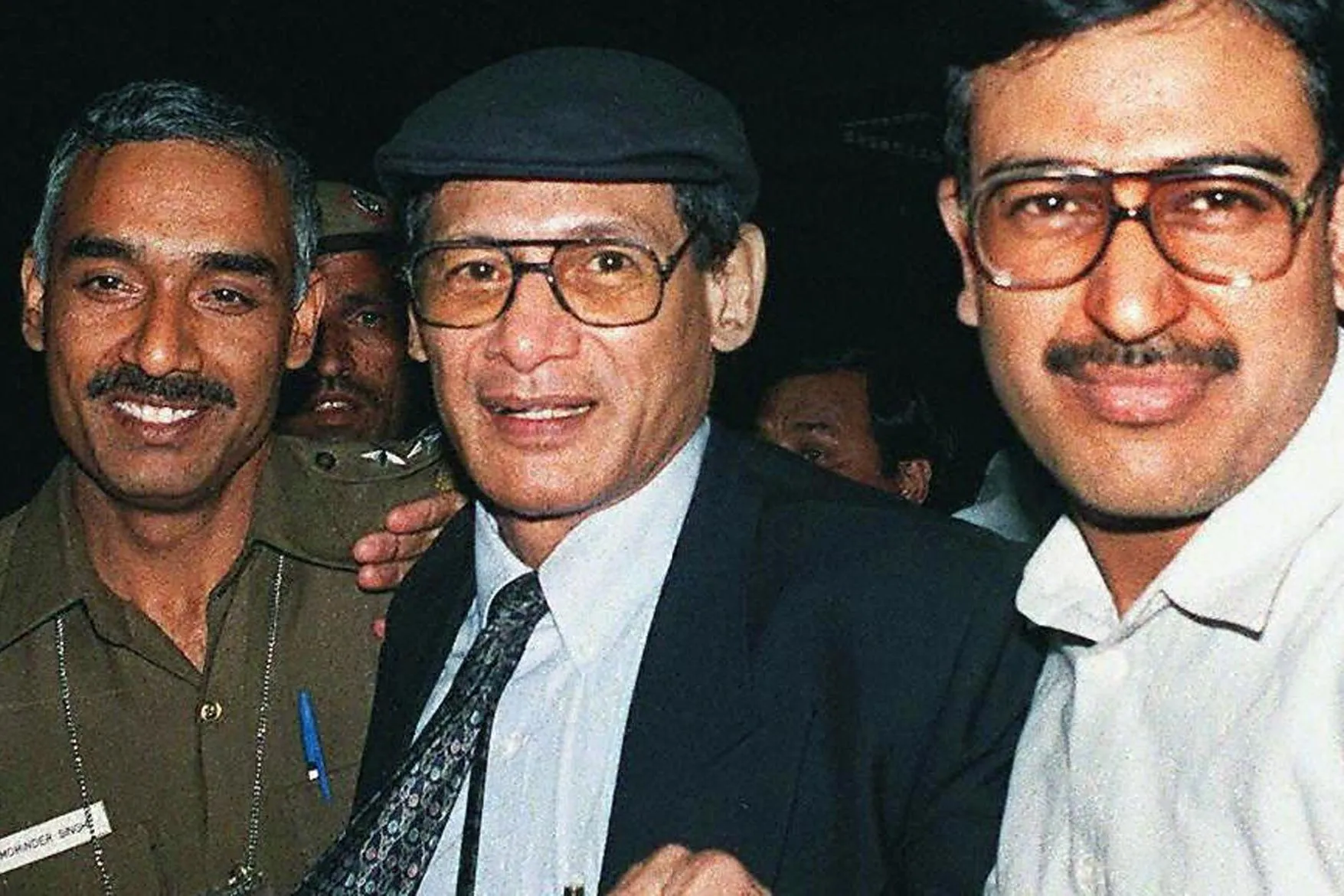'Serpent' killer released from Nepali jail, to be deported to France
The expulsion should take place within 15 days, but the killer's lawyer requested the next day that it gets delayed because of health conditions.
-

The 'Serpent' Killer (British GQ)
French serial killer Charles Sobhraj, known as the 'Serpent' or 'Bikini' killer, was freed from Nepali prison on Friday and is due to be transferred to immigration detention before his scheduled deportation to France.
The expulsion should take place within 15 days, per Nepal's top court ruling on Wednesday, but the killer's lawyer requested the next day that it gets delayed because of health conditions.
The lawyer, Gopal Shiwakoti Chintan, told reporters, "Once he is taken to the immigration, then it will be decided what would be the next course. He has a heart issue, so he wants to get treatment from the Gangalal hospital."
On account of his heart surgery done back in 2017, the court ordered his release on health grounds after serving more than three-quarters of his sentence for killing two Americans in Nepal in the 1970s.
A French Foreign Affairs Ministry spokesperson told AFP on Thursday that its embassy in Nepal was monitoring the situation.
"If a request for expulsion is notified to them, France would be required to grant it since Sobhraj is a French national."
'He looked harmless'
Born to an Indian father and a Vietnamese mother who later married a Frenchman, Sobhraj would pose as a gem trader and make friends with his victims (many of them were Western backpackers) before drugging, robbing, and killing them.
His first murder involved the killing of a young American woman who was found in a bikini on the beach in 1975 which led the sophisticated-looking killer to be dubbed the "bikini killer". US tourist Connie Jo Bronzich was his first murder. A decade later, he was found guilty of killing Bronzich's Canadian companion - his second murder.
He was arrested in India a year later in 1976 and spent 21 years in a local prison but attempted to escape by drugging prison guards in 1986. He was recaptured in the Indian coastal state of Goa.
After finally being released in 1997, he moved to live in Paris, made a living by providing paid interviews to journalists, and traveled back to Nepal in 2003.
"He looked harmless... It was sheer luck that I recognised him," journalist Joseph Nathan told AFP on Thursday. "I think it was karma."
Back in 2007, during an interview at Kathmandu's Central Jail with AFP, Sobhraj said, "I really didn't do it, and I think I will be out."
Sobhraj's other sobriquet, "The Serpent", came from his ability to assume other identities to evade justice.
It became the title of a hit series made by the BBC and Netflix that was based on his life.

 3 Min Read
3 Min Read








